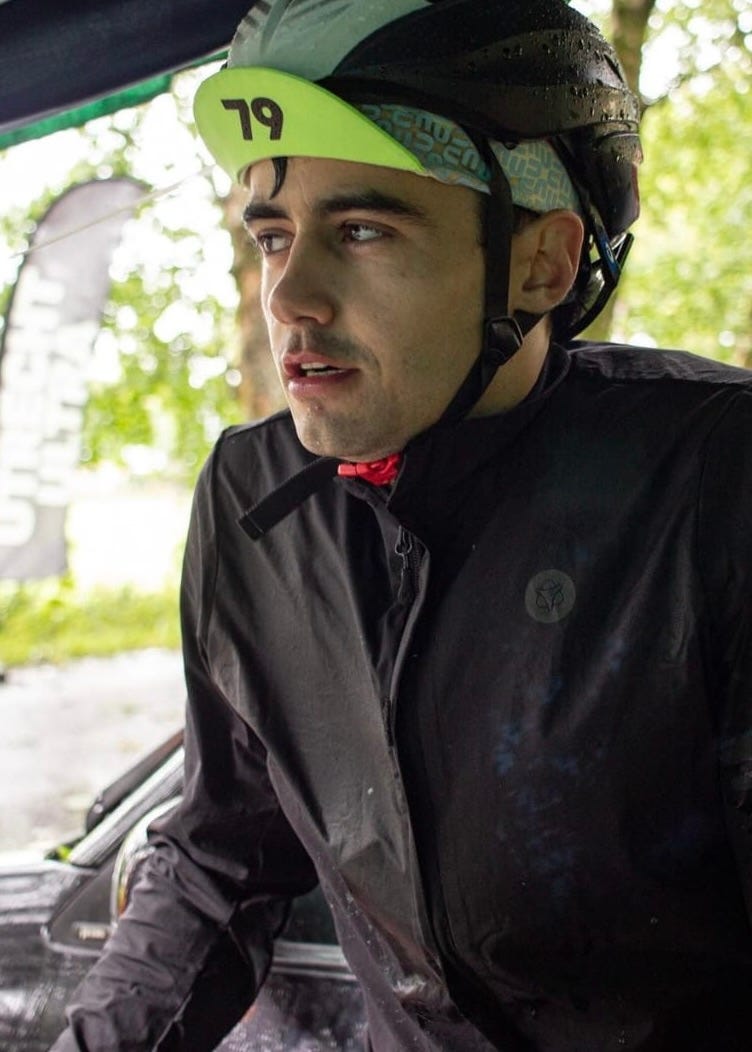Why emotional intelligence (EI) & physical endurance are deeply interlinked
Building character & confidence that'll set you up for life can be achieved with ultra endurance sports.
You can’t have an easy life and a great character. The two just don’t go together. But in a society where cheap dopamine is available on demand and you don’t have to leave your bedroom to make a living, what is it that endurance sport can do for you as a person?
Well if we start breaking down endurance races, they’re not just about mindless physical exertion and grit. Despite constant pain, sleep deprivation and exhaustion, the outcomes of these races are actually made by micro decisions.
When should you sleep or push on through the night to overtake more riders? When should you risk carrying less water so you can move faster up hills? When should you scratch from a race or just endure the pain?
It’s during these moments that you learn to regulate and control intense feelings, developing a layer of resilience that many people overlook - emotional intelligence (EI).
Ultimately, the more you train for endurance races, the smaller the physical adaptations become. Where the top athletes make the real difference is building a formidable mental state that turns emotional cues into race-winning cognitive processes, decisions and physical actions.
So how exactly do you build EI?
Developing EI comes from experiences & steadying your emotions
From an outside perspective, ultra endurance sport seemingly blurs the boundaries between normality and insanity. “Why?” and “crazy” are probably the two words I hear most from work colleagues and friends.
But the more your ambitions grow as an athlete and the further you push your body in races, the more you have to normalise extreme physical challenges in your head. In practise, this means learning to steady your emotions and avoid large fluctuations that directly impact your physical performance.
Especially at the start of Race around the Netherlands 2024 (RatN), I observed many competitors who were riding off pure adrenaline and excitement. That’s all well and good, but the problems start 700km later when you experience your first energy dip. The discrepancy between both points is so large that it exaggerates your negative feelings and increases the chances you’ll scratch.
Now I’m not saying don’t feel any excitement, but the ability to regulate and contain your emotions will give you a more consistent physical performance.
So how do you train this for race days?
The amount of EI you develop, depends on the frequency at which you experience hardship in your training. There’s no other way around it.
In my preparations for RatN 2024, I endured a heavy crash at 70kph, 40km Spanish climbs reaching +3000 metres, extreme headwinds, icy Dutch rain, consecutive days riding when I was tired, monotonous indoor Zwift sessions after work…The list goes on.

It’s the accumulation of these uncomfortable experiences that builds your EI. The challenging part, however, is voluntarily going through them on a repeated basis.
Especially in a society that encourages the exact opposite with everything being a click away - gambling, porn, takeaway food, designer goods - you have to develop a trait called discipline, not to be confused with motivation.
I can guarantee that most top endurance athletes have as much motivation as a normal person. Stepping onto your bike is one of the hardest parts of training on a daily basis. But what we do have in abundance is discipline.
We’ve programmed our minds to train even when we don’t want to. As the famous Kenyan marathon runner, Eliud Kipchoge, said: “Only the disciplined ones in life are free. If you are undisciplined, you are a slave to your moods and your passions."
Higher EI levels build the confidence you carry in your life
Here’s how I’ve come to understand confidence.
Firstly, it’s the culmination of what you proved to yourself about yourself and the commitments you keep to yourself.
Secondly, you build confidence when you give the world irrefutable proof you are, who you say you are.
That’s why I strongly believe that endurance sport can do so much for you as a person. You consistently experience moments that strip you back to survival instincts and teach you to sacrifice the present for the future i.e. the training I do now, means I can compete in the top end races.
What I’ve also noticed is that I’ve developed a certain fearlessness and immunity to challenges in everyday life. Because you experience so much on the bike, navigating the harder moments in life becomes a lot easier and you develop a “F*ck it, I’ll just do it” attitude.
Grumpy Gregor is no more
It’s a fascinating and delicate overlap between physical ability and emotional intelligence, but ultimately the two are inseparable when it comes to endurance sport.
You should ask my parents how grumpy I used to get. Sure I’ve matured with age, but ultra cycling has undoubtedly accelerated my EI and confidence.
Now as I race harder endurance challenges, the goal is minimise mood fluctuations and maximise my physical performance for better results.
Subscribe for more content and leave a comment which other topics I should cover.
In the pipeline for May, June, July and August we have;
How I train for ultra endurance events
Trans Alba race report
The best nutrition strategy for adventure bike racing
What I take with me on ultra races
Utrecht Ultra race report
How to ride ultra distances more efficiently
Plus other floating topics ideas I have




